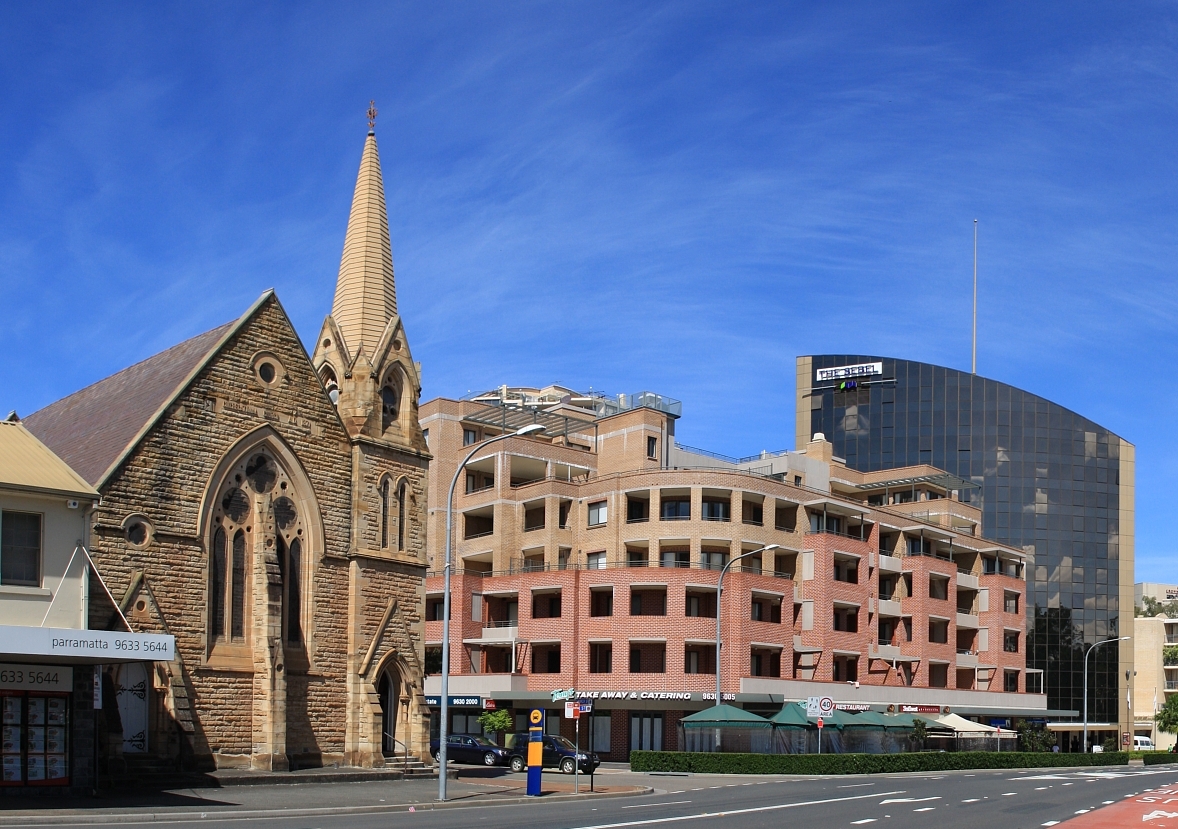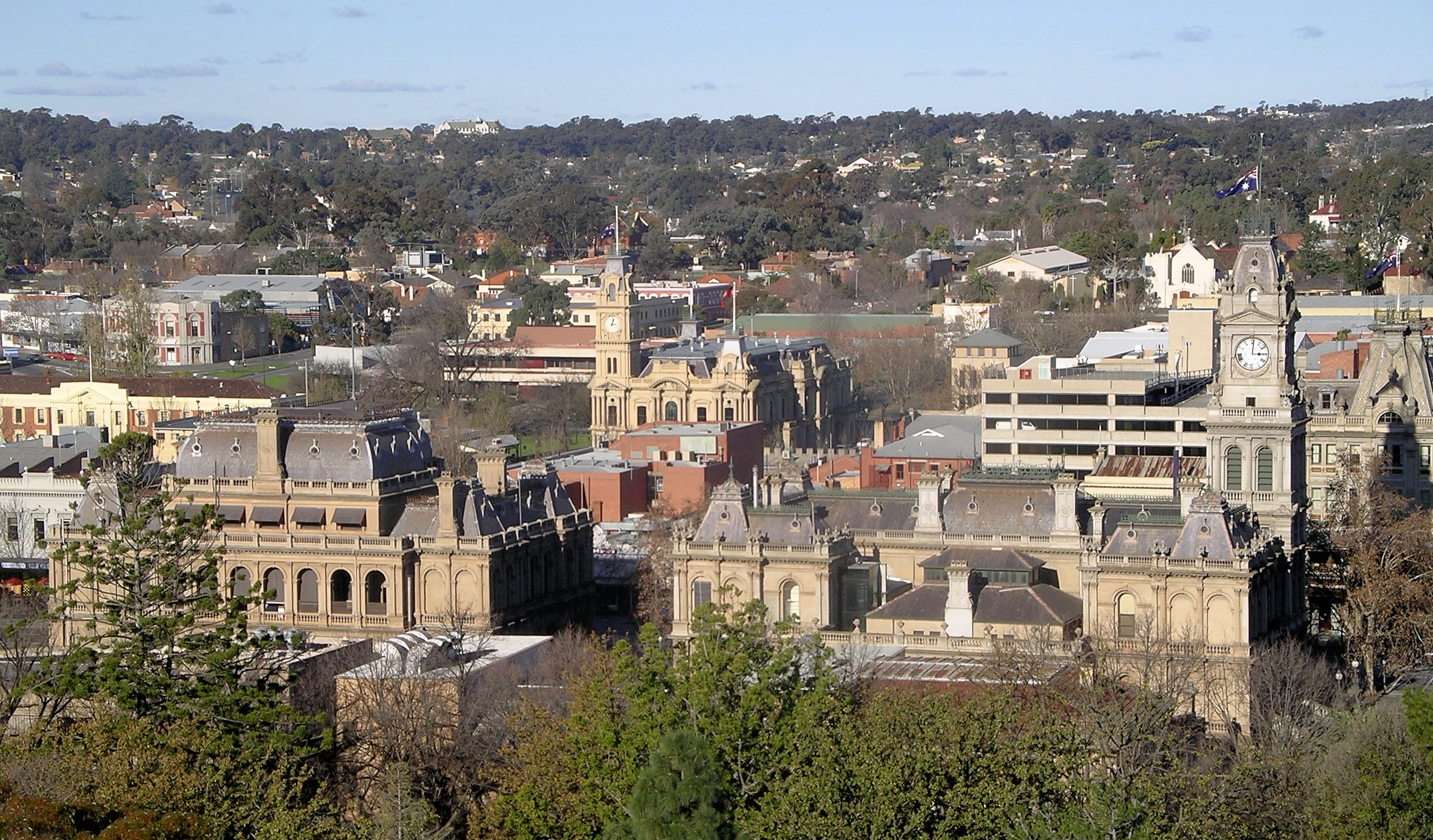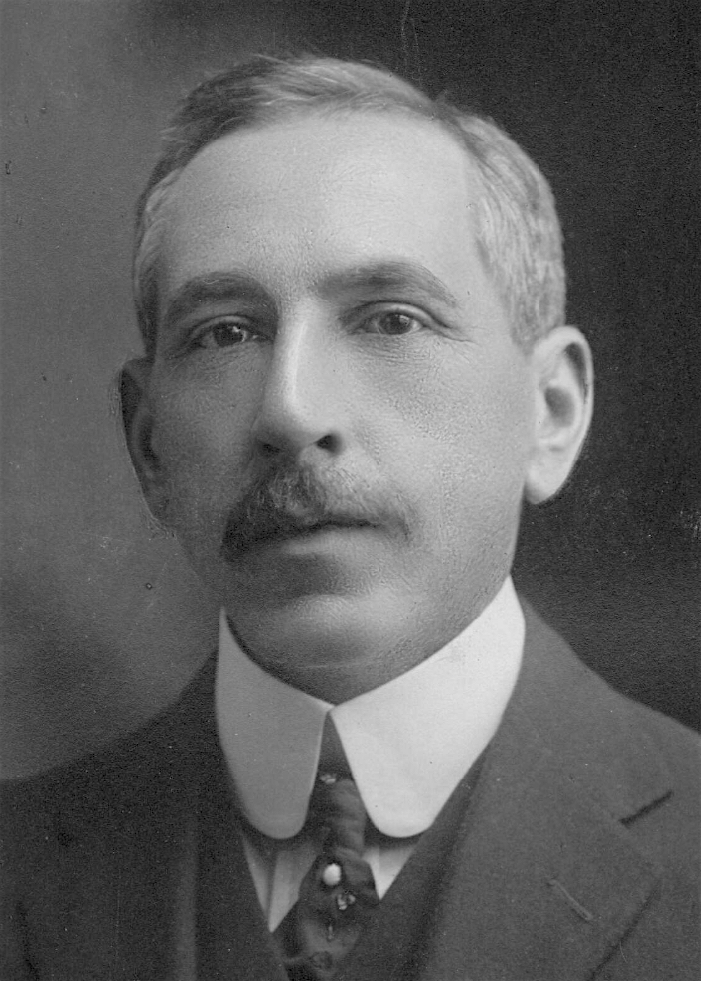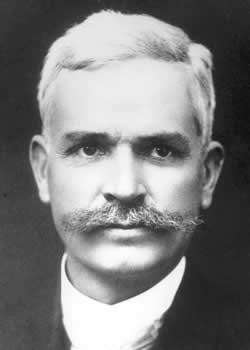|
Third Hughes Ministry
The Third Hughes ministry (Nationalist) was the 13th ministry of the Government of Australia. It was led by the country's 7th Prime Minister, Billy Hughes. The Third Hughes ministry succeeded the Second Hughes ministry, which dissolved on 17 February 1917 after the governing National Labor Party merged with the Liberal Party to form the Nationalist Party. The National Labor Party itself formed as a consequence of the split that took place within the then-governing Labor Party over the issue of conscription. The ministry was replaced by the Fourth Hughes ministry on 8 January 1918 following the resignation of Hughes as Prime Minister after a vote of no-confidence within the Nationalist Party in the wake of a failed second referendum on conscription. However, due to a lack of alternative leaders, Hughes was immediately re-commissioned as Prime Minister by Governor-General Sir Ronald Munro Ferguson. Billy Hughes, who died in 1952, was the last surviving member of the Third Hugh ... [...More Info...] [...Related Items...] OR: [Wikipedia] [Google] [Baidu] |
Billy Hughes
William Morris Hughes (25 September 1862 – 28 October 1952) was an Australian politician who served as the seventh prime minister of Australia, in office from 1915 to 1923. He is best known for leading the country Military history of Australia during World War I, during World War I, but his influence on national politics spanned several decades. Hughes was a member of federal parliament from Federation of Australia, Federation in 1901 until his death, List of longest-serving members of the Parliament of Australia, the only person to have served for more than 50 years. He represented six political parties during his career, leading five, outlasting four, and being expelled from three. Hughes was born in London to Welsh people, Welsh parents. He emigrated to Australia at the age of 22, and became involved in the fledgling Australian labour movement. He was elected to the New South Wales Legislative Assembly in 1894, as a member of the Australian Labor Party (New South Wales Br ... [...More Info...] [...Related Items...] OR: [Wikipedia] [Google] [Baidu] |
Governor-General Of Australia
The governor-general of Australia is the representative of the monarch, currently King Charles III, in Australia.Governor-General of the Commonwealth of Australiaofficial website Retrieved 1 January 2015. The governor-general is appointed by the monarch on the recommendation of government ministers. The governor-general has formal presidency over the Federal Executive Council and is commander-in-chief of the Australian Defence Forc ... [...More Info...] [...Related Items...] OR: [Wikipedia] [Google] [Baidu] |
Minister For Defence (Australia)
The Minister for Defence is the principal minister responsible for the organisation, implementation, and formulation of government policy in defence and military matters for the Australian Government. The individual who holds this office directs the government’s approach to such matters through the Australian Defence Organisation and, by extension, the Department of Defence and the Australian Defence Force. The office of the Minister for Defence, like all Cabinet positions, is not referenced in the Constitution of Australia but rather exists through convention and the prerogative of the Governor-General to appoint ministers of state. As the Minister for Defence is responsible for the executive management of Australia's defence and military forces and the portfolio's accountability to the Parliament, the Secretary of Defence is required under section 63(1) of the ''Public Service Act 1999'' and the ''Requirements for Annual Reports'' from the Parliamentary Joint Committee on P ... [...More Info...] [...Related Items...] OR: [Wikipedia] [Google] [Baidu] |
Sir Joseph Cook
Sir Joseph Cook, (7 December 1860 – 30 July 1947) was an Australian politician who served as the sixth Prime Minister of Australia, in office from 1913 to 1914. He was the leader of the Liberal Party from 1913 to 1917, after earlier serving as the leader of the Anti-Socialist Party from 1908 to 1909. Cook was born in Silverdale, Staffordshire, England, and began working in the local coal mines at the age of nine. He emigrated to Australia in 1885, settling in Lithgow, New South Wales. He continued to work as a miner, becoming involved with the local labour movement as a union official. In 1891, Cook was elected to the New South Wales Legislative Assembly as a representative of the Labor Party, becoming one of its first members of parliament. He was elected party leader in 1893, but the following year left Labor due to a disagreement over party discipline. He was then invited to become a government minister under George Reid, and joined Reid's Free Trade Party. In 1901, ... [...More Info...] [...Related Items...] OR: [Wikipedia] [Google] [Baidu] |
Division Of Parramatta
The Division of Parramatta is an Australian electoral division in the state of New South Wales. The division was created in 1900 and was one of the original 65 divisions contested at the first federal election. It is named for the locality of Parramatta. The name Parramatta has been sourced to an Aboriginal word for the area. The Darug people had lived in the area for many generations, and regarded the area as a food bowl, rich in food from the river and forests. They called the area Baramada or Burramatta ("Parramatta") which means "the place where the eels lie down". The division is based in the western suburbs of Sydney. Besides Parramatta, it includes Camellia, Clyde, Constitution Hill, Dundas Valley, Granville, Harris Park, Holroyd, Mays Hill, North Parramatta, Oatlands, Rosehill, Rydalmere, Telopea, Wentworthville, Westmead; and parts of Carlingford, Dundas, Ermington, Guildford, Merrylands, North Rocks, Northmead, Old Toongabbie, Pendle Hill, South ... [...More Info...] [...Related Items...] OR: [Wikipedia] [Google] [Baidu] |
Joseph Cook
Sir Joseph Cook, (7 December 1860 – 30 July 1947) was an Australian politician who served as the sixth Prime Minister of Australia, in office from 1913 to 1914. He was the leader of the Liberal Party from 1913 to 1917, after earlier serving as the leader of the Anti-Socialist Party from 1908 to 1909. Cook was born in Silverdale, Staffordshire, England, and began working in the local coal mines at the age of nine. He emigrated to Australia in 1885, settling in Lithgow, New South Wales. He continued to work as a miner, becoming involved with the local labour movement as a union official. In 1891, Cook was elected to the New South Wales Legislative Assembly as a representative of the Labor Party, becoming one of its first members of parliament. He was elected party leader in 1893, but the following year left Labor due to a disagreement over party discipline. He was then invited to become a government minister under George Reid, and joined Reid's Free Trade Party. In 19 ... [...More Info...] [...Related Items...] OR: [Wikipedia] [Google] [Baidu] |
Attorney-General Of Australia
The Attorney-GeneralThe title is officially "Attorney-General". For the purposes of distinguishing the office from other attorneys-general, and in accordance with usual practice in the United Kingdom and other common law jurisdictions, the Australian Attorney-General uses the term "Attorney-General for Australia" or the "Commonwealth Attorney-General": seAttorney-General website Historically, "Attorney-General of Australia" was also used. for Australia is the First Law Officer of the Crown in right of the Commonwealth of Australia, chief law officer of the Commonwealth of Australia and a minister of state. The attorney-general is usually a member of the Federal Cabinet, but need not be. Under the Constitution, they are appointed by the Governor-General on the advice of the Prime Minister, and serve at the Governor-General's pleasure. In practice, the attorney-general is a party politician and their tenure is determined by political factors. By convention, but not constitutio ... [...More Info...] [...Related Items...] OR: [Wikipedia] [Google] [Baidu] |
Billy Hughes 1916
Billy may refer to: * Billy (name), a name (and list of people with the name) Animals * Billy (dog), a dog breed * Billy (pigeon), awarded the Dickin Medal in 1945 * Billy (pygmy hippo), a pet of U.S. President Calvin Coolidge * Billy, a young male domestic goat Film * Billy (''Black Christmas''), a character from ''Black Christmas'' * Billy (''Saw''), a puppet from ''Saw'' * '' Billy: The Early Years'', a 2008 biographical film about Billy Graham Literature * ''Billy'' (novel), a 1990 novel by Whitley Strieber * ''Billy'', a 2002 biography of Billy Connolly by Pamela Stephenson Music Musicals * ''Billy'' (musical), a musical based on Billy Liar * ''Billy'', a 1969 Broadway musical with music and lyrics by Gene Allen and Ron Dante Albums * ''Billy'' (Samiam album) (1992) * ''Billy'' (Feedtime album) Songs * "Billy" (Kathy Linden song), a 1958 song by Kathy Linden * "Billy", a 1986 song by Céline Dion from '' The Best of Celine Dion'' * "Billy", a 1973 so ... [...More Info...] [...Related Items...] OR: [Wikipedia] [Google] [Baidu] |
Division Of Bendigo
The Division of Bendigo is an Australian electoral division in the state of Victoria. The division was proclaimed in 1900, and was one of the original 65 divisions to be contested at the first federal election. It is named for the city of Bendigo. The division is situated on the northern foothills of the Great Dividing Range in North Central Victoria. It covers an area of approximately and provides the southern gateway to the Murray–Darling basin. In addition to the city of Bendigo, other large population centres in the division include , , Kyneton and . The current Member for the Division of Bendigo, since the 2013 federal election, is Lisa Chesters, a member of the Australian Labor Party. Geography Since 1984, federal electoral division boundaries in Australia have been determined at redistributions by a redistribution committee appointed by the Australian Electoral Commission. Redistributions occur for the boundaries of divisions in a particular state, and they ... [...More Info...] [...Related Items...] OR: [Wikipedia] [Google] [Baidu] |
Division Of West Sydney
The Division of West Sydney was an Australian electoral division in the state of New South Wales. It was located in the inner western suburbs of Sydney, and at various times included the suburbs of Pyrmont, Darling Harbour, Surry Hills, Balmain, Glebe, and from 1955 to 1969, Lord Howe Island. The division was proclaimed in 1900, and was one of the original 75 divisions to be contested at the first federal election. It was abolished at the redistribution of 21 November 1968. It was the first of four seats to be held by Billy Hughes, the eleventh Prime Minister of Australia The prime minister of Australia is the head of government of the Commonwealth of Australia. The prime minister heads the executive branch of the Australian Government, federal government of Australia and is also accountable to Parliament of A ... and the longest-serving member of the Australian Parliament. It was also held by T. J. Ryan, a former Premier of Queensland. Members Election r ... [...More Info...] [...Related Items...] OR: [Wikipedia] [Google] [Baidu] |
The Right Honourable
''The Right Honourable'' (abbreviation: ''Rt Hon.'' or variations) is an honorific Style (form of address), style traditionally applied to certain persons and collective bodies in the United Kingdom, the former British Empire and the Commonwealth of Nations. The term is predominantly used today as a style associated with the holding of certain senior public offices in the United Kingdom, Canada, New Zealand, and to a lesser extent, Australia. ''Right'' in this context is an adverb meaning 'very' or 'fully'. Grammatically, ''The Right Honourable'' is an adjectival phrase which gives information about a person. As such, it is not considered correct to apply it in direct address, nor to use it on its own as a title in place of a name; but rather it is used in the Grammatical person, third person along with a name or noun to be modified. ''Right'' may be abbreviated to ''Rt'', and ''Honourable'' to ''Hon.'', or both. ''The'' is sometimes dropped in written abbreviated form, but is al ... [...More Info...] [...Related Items...] OR: [Wikipedia] [Google] [Baidu] |
Third Fisher Ministry
The Third Fisher ministry (Labor) was the 10th ministry of the Government of Australia. It was led by the country's 5th Prime Minister, Andrew Fisher. The Third Fisher ministry succeeded the Cook ministry, which dissolved on 17 September 1914 following the federal election that took place on 5 September which saw Labor defeat Joseph Cook's Liberals. The ministry was replaced by the First Hughes ministry on 27 October 1915 following Fisher's retirement from Parliament to become the next High Commissioner to the United Kingdom. Billy Hughes, who died in 1952, was the last surviving member of the Third Fisher ministry; Hughes was also the last surviving member of the Watson ministry, First Fisher ministry, Second Hughes ministry and Third Hughes ministry The Third Hughes ministry (Nationalist) was the 13th ministry of the Government of Australia. It was led by the country's 7th Prime Minister, Billy Hughes. The Third Hughes ministry succeeded the Second Hughes minist ... [...More Info...] [...Related Items...] OR: [Wikipedia] [Google] [Baidu] |







_(cropped).jpg)
